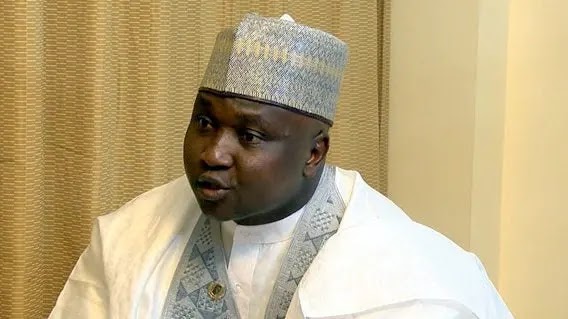It was alleged that Doguwa was involved in a clash between members of the New Nigeria People Party (NNPP) and the All Progressives Congress (APC), which resulted in the death of three individuals and the burning of a campaign office belonging to the opposition party in the Tudun Wada Local Government Area of Kano.
However, on Thursday, May 25, Kano's Attorney General and Commissioner of Justice, Musa Abdullahi Lawan, announced that there was insufficient evidence to link Doguwa to the arson attack and the resulting loss of lives. Lawan emphasised the lack of substantial proof connecting the lawmaker to the alleged criminal conspiracy, mischief by fire, and culpable homicide.
He stated that the statements provided by those implicating Doguwa were riddled with contradictions, and no medical evidence could be found to confirm the deaths of the victims.
Lawan affirmed, "The law is clear that the allegations that Doguwa killed people cannot be substantiated." This exoneration is a significant development for Doguwa, who has maintained his innocence throughout the proceedings.
The decision by the Attorney General and Commissioner of Justice reflects a careful examination of the available evidence and an objective assessment of the case against the House leader.
While Doguwa has been cleared of the murder charges, the authorities have identified eight to twelve suspects who will face charges of mischief by the fire under Section 336 of the Penal Code (as amended).
This indicates that the investigation into the violent incidents is ongoing, and those responsible for the arson attack will be held accountable for their actions.
The exoneration of Doguwa has sparked various reactions among political circles and the public. Supporters of the House leader have expressed relief and believe that justice has been served. They argue that the lack of evidence against Doguwa reinforces his innocence and underscores the need for a fair and thorough investigation.
On the other hand, critics of the decision claim that it raises concerns about the effectiveness of the legal system and the ability to hold individuals accountable for acts of violence during elections. They stress the importance of conducting comprehensive investigations to ensure that all perpetrators, regardless of their political affiliations, are brought to justice.
The exoneration of Doguwa comes at a crucial time as the country grapples with the need for peaceful and fair elections. It serves as a reminder that the rule of law should prevail, and individuals should be presumed innocent until proven guilty based on concrete evidence.
In light of this development, the focus now shifts to the prosecution of the suspects who will face charges of mischief by fire. It is essential for the legal process to be conducted impartially, with a thorough examination of the evidence and a commitment to ensuring justice for the victims of violent incidents.
The exoneration of Doguwa also raises broader questions about the security and stability of the electoral process in Nigeria. It highlights the need for enhanced measures to prevent violence and maintain a peaceful environment during elections.
Political stakeholders, law enforcement agencies, and electoral bodies must collaborate to create an atmosphere conducive to free and fair elections, where individuals can exercise their democratic rights without fear of intimidation or violence.
As the legal proceedings continue, it is crucial for the authorities to maintain transparency and keep the public informed about the progress of the investigation. This will help build trust in the justice system and ensure that the outcome is perceived as fair and unbiased.
The exoneration of House leader Alhassan Ado Doguwa from charges of culpable homicide and mischief by fire marks a significant turning point in the ongoing investigation into the violent incidents that occurred during the 25 February election in Kano.
While it brings relief to Doguwa and his supporters, it also underscores the need for a comprehensive and unbiased approach to investigating and prosecuting those responsible for acts of violence. The focus now turns to the prosecution of the suspects identified in the case, as the pursuit of justice for the victims remains of utmost importance.



